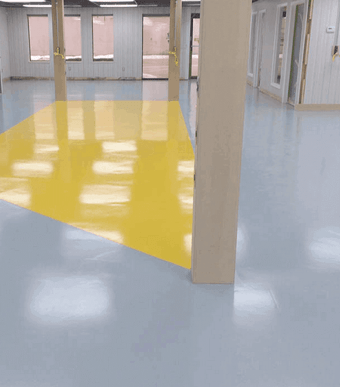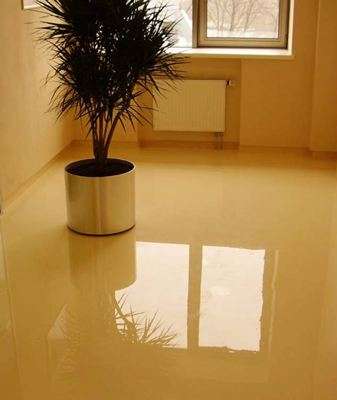Polymer floors
Polymer floors is a kind of protective and decorative coating on a single-component or multi-component basis.
Polymer floors
The polymer floor consists of epoxy or polyurethane compositions, with the addition of mineral components that improve the physical and chemical properties of the surface. The material is easy to install, the service life of the polymer floor is at least 20 years.
TYPES OF POLYMER FLOORS
- Epoxy. The main component of the mixture is epoxy resin. Such solutions are resistant to mechanical and shock impacts, have high resistance to acid-base environment. Recommended for use in rooms with a high level of humidity.
- Polyurethane. They are made on the basis of polyurethane resins, are not prone to cracking when exposed to significant loads. Mixtures are poured in areas with heavy traffic or increased friction: car parks, shopping and entertainment centers.
- Methyl methacrylate. They are inferior in strength to floors on an epoxy-polyurethane basis, but quickly seize, withstand pedestrian loads 30 minutes after pouring. Neutral to the effects of sub-zero temperatures, suitable for unheated rooms.
- Epoxy urethane. Combined version that combines rigidity and elasticity. It is allowed to add components that give the surface antistatic non-slip properties.

Characteristics of polymer floors
- Mechanical strength — up to 80 MPa for screed, 6 mm thick;
- Tendency to abrasion — 2-3 microns per year;
- Curing speed — from 30 minutes to 24 hours, depending on the category of the mixture;
- Operating temperature range — from -25 to +80 degrees with full preservation of basic parameters;
- Fire safety — ignites at a temperature of + 472-550 degrees, does not contribute to the spread of fire, moderate smoke generation;
- Environmental friendliness — the composition does not contain toxic substances.

